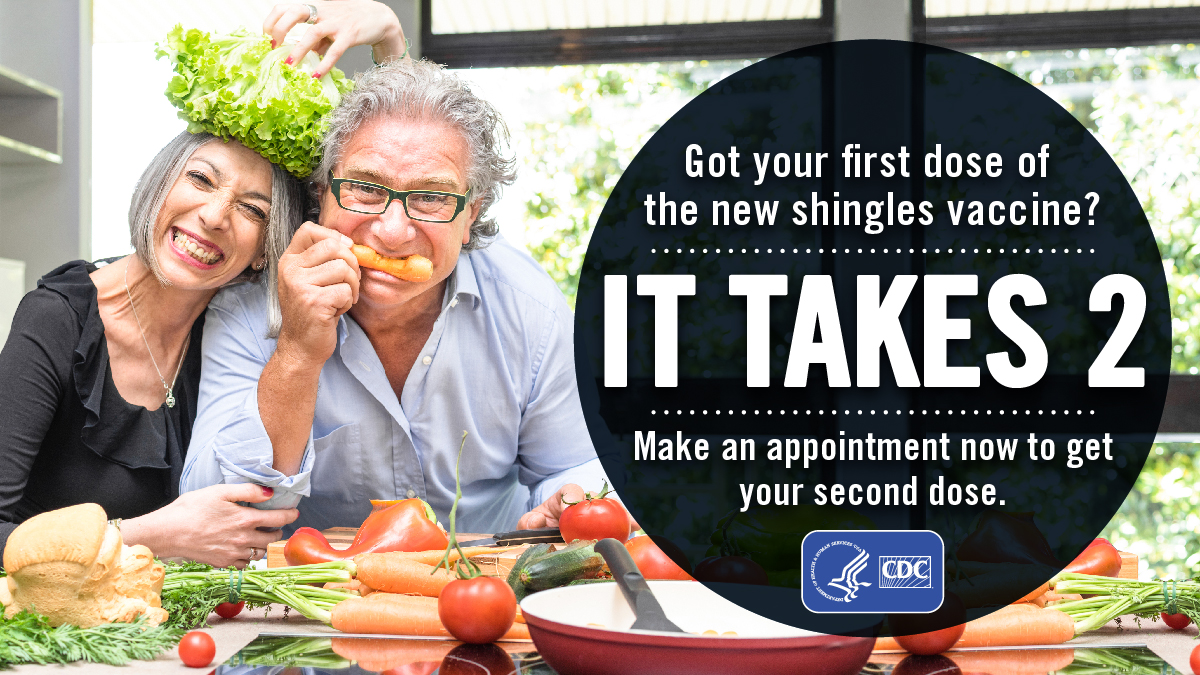Key points
- About 1 in every 3 people in the United States will have shingles (or herpes zoster) in their lifetime.
- Shingles can sometimes lead to serious complications like long-term nerve pain and vision loss.
- The best way to protect yourself from shingles is vaccination.

What it is
Shingles is a painful rash illness. People get shingles when the varicella-zoster virus (VZV), which causes chickenpox, reactivates in their bodies after they have already had chickenpox.
An estimated 1 million people get shingles each year in this country. Most people who develop shingles only have it one time during their life. However, you can have shingles more than once.
Signs and symptoms
People with shingles most commonly have a rash around the left or right side of the body. The rash is usually painful, itchy, or tingly.
Shingles can lead to serious complications. The most common shingles complication is long-term nerve pain called postherpetic neuralgia, or PHN.
Who is at risk
More than 99% of Americans born before 1980 had chickenpox, even if they don't remember it. Children can have shingles, but it is not common.
Your risk of shingles and serious complications increases:
- As you get older.
- If you have medical conditions that keep your immune systems from working properly such as certain cancers like leukemia and lymphoma, and HIV infection.
- If you take drugs that keep your immune system from working properly, like steroids and drugs given after an organ transplant.
Causes and spread
Shingles is caused by varicella-zoster virus (VZV), the same virus that causes chickenpox. Once a person has chickenpox, the virus stays in their body. The virus can reactivate later in life and cause shingles.
People who never had chickenpox or didn't get chickenpox vaccine can get infected with VZV from someone who has shingles. These people can get the virus through:
- Direct contact with the fluid from shingles rash blisters.
- Breathing in virus particles that come from the blisters.
People with chickenpox are more likely to spread VZV than people with shingles.
Prevention
Protect yourself with the vaccine. CDC recommends 2 doses of recombinant zoster vaccine (RZV, Shingrix) to prevent shingles and related complications in adults 50 years and older. Shingrix is also recommended for adults 19 years and older who have weakened immune systems because of disease or therapy.

If you have shingles, protect others
Covering the shingles rash can lower the risk of spreading the shingles virus to others. People with shingles cannot spread the virus before the blisters appear or after the rash scabs over.
To prevent spreading the virus to others:
- Cover the rash
- Avoid touching or scratching the rash
- Wash your hands often for at least 20 seconds
- Avoid contact with the following people until your rash scabs over
- Pregnant women who never had chickenpox or chickenpox vaccine
- Premature or low birth weight infants
- People with weakened immune systems
- Pregnant women who never had chickenpox or chickenpox vaccine
Treatment and recovery
Several antiviral medicines are available to treat shingles:
- Acyclovir (ay-sah-EE-kluh-veer)
- Valacyclovir (va-luh-sah-EE-kluh-veer)
- Famciclovir (fam-sah-EE-kluh-veer)
These medicines shorten the length and severity of the illness. They work best when you take them as soon as the rash appears. If you think you have shingles, contact your doctor as soon as possible to talk about treatment.
Pain relief medicine may help with the pain caused by shingles. This can be over the counter or a prescription from your doctor. Wet compresses, calamine lotion, and warm oatmeal baths may help relieve itching.
